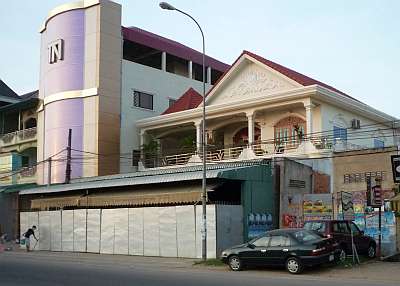
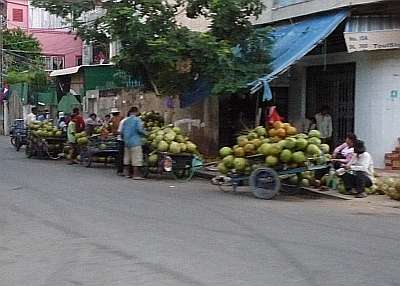
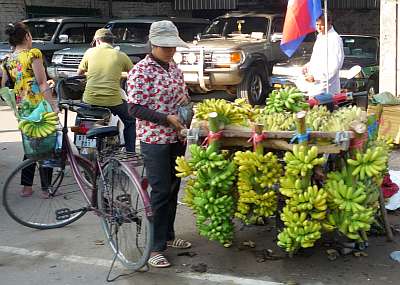
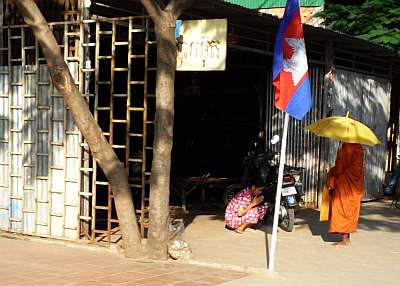
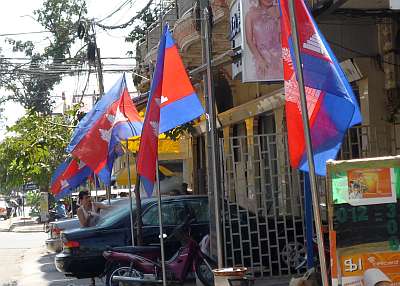
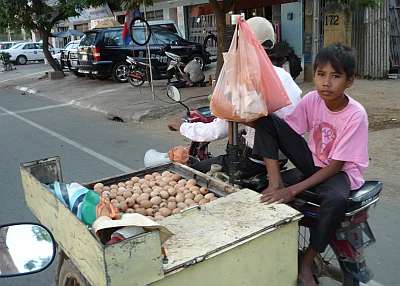
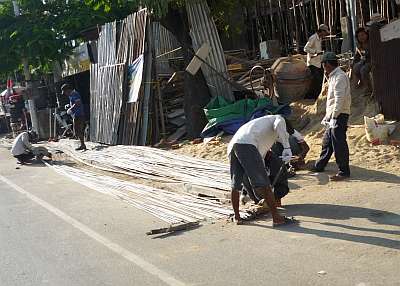
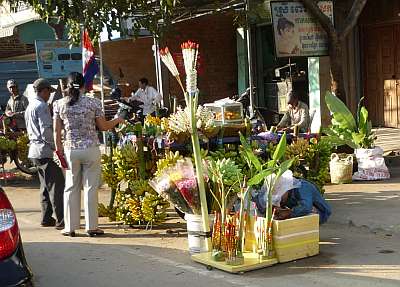
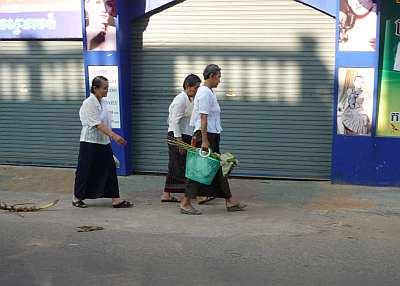
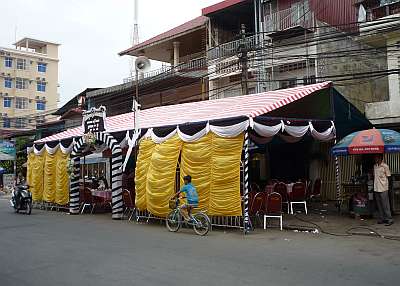
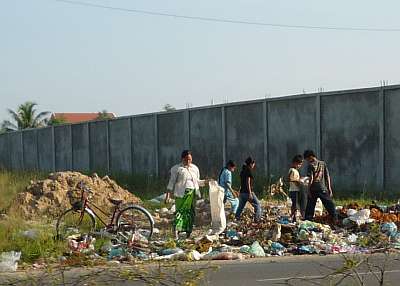
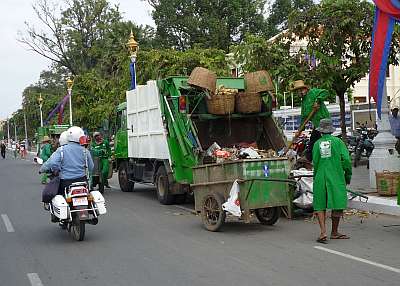
1-3 November 2009
Water Festival: Daily Life Continues
 |
Between one and two million people come to Phnom Penh for the Water Festival, the television shows continuous coverage of the boat races, and the national flags are everywhere, but in many ways life goes on as it does every day. This shop is one that has been shuttered for the days of the festival but still someone is outside sweeping the street as happens every day. |
 |
Every day wholesalers bring early morning truckloads of coconuts to the city and distribute them to pushcart vendors, dividing them up on a designated street corner. Many of these will end up as the Cambodian equivalent of soft drinks for thirsty festival-goers. |
 |
Bananas are an important staple part of the Cambodia diet. They are cheap and grow everywhere, and everyone likes them. These will end up along the waterfront, a cheap treat for those watching the races and also watching their money. |
 |
Another routine that doesn't change—can't change—are the morning rounds of the Buddhist monks begging for food and money, both to feed themselves and to feed the poor of the city. |
 |
While the monk is begging for the poor, this man is taking care of a prized possession and giving his car its every morning washing. |
 |
Probably heading toward the river crowds, this man drives his motorcycle cart selling baked eggs. His son, off from school for the holidays, comes along to offer help and company for a long day. |
 |
And then there are the businesses that never shut down. These construction workers work on piles of rebar, holiday or no holiday. |
 |
Today is a Buddhist holiday and so the street markets have the traditional flower offerings for sale along the roads. |
 |
These women, in the traditional temple dress, make their way to the pagoda for a morning ceremony. |
 |
Funerals don't recognize holidays either, and this family spends the Water Festival with ceremonies and meals served in this funeral tent set up in front of their business on a busy street. |
 |
For the very poor, a holiday is little different from any other day. It holds the same challenge to get enough food for the family. This mother and her children search through garbage piled alongside the road, hoping to find some solids that can be recycled. |
 |
One of the most respected groups in Phnom Penh is the Cintri company, the group that collects most of the city's garbage. They work almost every holiday, and they work even harder for the holidays because of the day's accumulation of trash left behind by one or two million people who have a tradition of throwing everything on the ground. |
Go to Cambodian Culture main page
Go to Charlie Dittmeier's home page